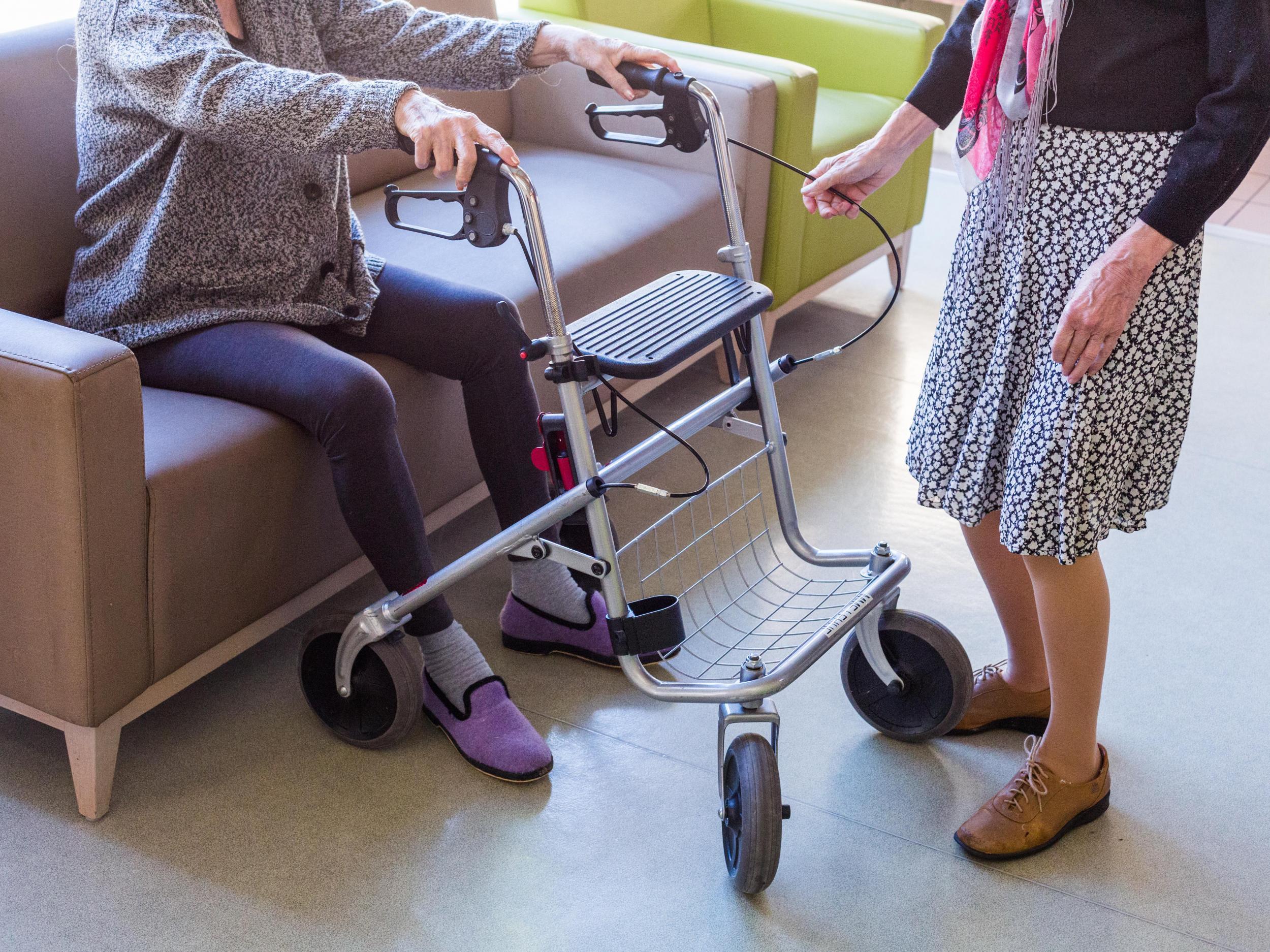Social care crisis: Over-85s needing 24 hour care set to double by 2035, major study shows
Extending the retirement age will reduce the 'informal and unpaid carer pool' who have traditionally provided for older family members and heap pressure on social care, experts warn

Your support helps us to tell the story
From reproductive rights to climate change to Big Tech, The Independent is on the ground when the story is developing. Whether it's investigating the financials of Elon Musk's pro-Trump PAC or producing our latest documentary, 'The A Word', which shines a light on the American women fighting for reproductive rights, we know how important it is to parse out the facts from the messaging.
At such a critical moment in US history, we need reporters on the ground. Your donation allows us to keep sending journalists to speak to both sides of the story.
The Independent is trusted by Americans across the entire political spectrum. And unlike many other quality news outlets, we choose not to lock Americans out of our reporting and analysis with paywalls. We believe quality journalism should be available to everyone, paid for by those who can afford it.
Your support makes all the difference.Pushing back the retirement age could heap fuel on the social care crisis as a new study reveals the number of over-65s in England in need of round-the-clock care will grow by a third by 2035.
Health improvements mean many more people will live to develop complex conditions like dementia and over the next two decades the number of over-85s in need of 24/7 support is expected to double to 446,000.
This will take the population of over-65s needing day and night support above one million for the first time, according to researchers from Newcastle University and the London School of Economics and Political Science.
While the number of older people living independently by 2035 is expected to rise 60 per cent – from 5.5 million in 2015 to 8.9 million by 2035 – the state pension age is due to rise to 67 by 2028 to compensate.
The authors of a study, published in The Lancet Public Health on Friday, stress this change will shrink the “informal care workforce” of family and friend carers which already contributes £57bn worth of care in the UK.
As many spouse carers are living with disabilities themselves ministers must find a long-term solution to meet the increasingly wide-ranging care needs of this population, the authors add.
“The challenge is considerable,” said Professor Carol Jagger, from the Newcastle University Institute for Ageing.
“Our study suggests that older spouse carers are increasingly likely to be living with disabilities themselves, resulting in mutual care relationships that are not yet well recognised by existing care policy and practices.
“On top of that, extending the retirement age of the UK population is likely to further reduce the informal and unpaid carer pool, who have traditionally provided for older family members.
“These constraints will exacerbate pressures on already stretched social care budgets.”
Increases in independence will be seen mainly in men, the authors predict after making predictions on expected patterns via a Population Ageing and Care Simulation (PACSim) model.
PACSim brings together health behaviours, like smoking, as well as major disease trends and socioeconomic information on education and earning, to predict levels of independence.
The population over 65 will increase by just under 50 per cent from 9.7 million in 2015 to 14.5 million in 2035.
While there will be more people living independently to the age of 74, Professor Jagger added: “Trends for men and women are likely to be very different, with women experiencing more low-level dependency than men, highlighting the importance of focusing on disabling long-term conditions such as arthritis that are more common in women than men.”
The researchers also analysed how the burden of dementia and other disease. While numbers of over-65s with dementia will fall by around a third (equivalent to 16,000 fewer people) by 2035, those with dementia and two or more conditions will more than double (equivalent to an additional 493,000 people).
Prof Jagger added: “This expanding group will have more complex care needs that are unlikely to be met adequately without improved co-ordination between different specialities and better understanding of the way in which dementia affects the management of other conditions.”
Nick Forbes, senior vice chairman of the Local Government Association which represents councils, said that they face a £3.5bn shortfall in funding for social care by 2025.
“This report is a further warning of the crisis in adult social care and the urgent need to plug the immediate funding gap and find a long-term solution on how we pay for it and improve people’s independence and wellbeing,” he added.
Join our commenting forum
Join thought-provoking conversations, follow other Independent readers and see their replies
Comments